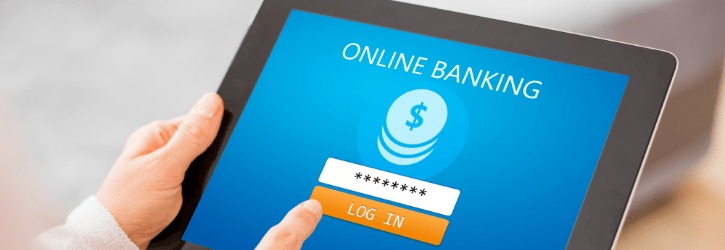
Welcome To The Data Leak Lawyers Blog
We focus on the latest news surrounding data breaches, leaks and hacks plus daily internet security articles.

We focus on the latest news surrounding data breaches, leaks and hacks plus daily internet security articles.

A seriously concerning security flaw has been discovered which has reportedly allowed hackers to covertly put so-called monitoring implants in iPhones.
The vulnerability is said to have been discovered in January 2019, with Apple releasing a security patch in February 2019. It’s understood that Google’s external ‘white hat’ security team, known as Project Zero, are responsible for identifying the flaw.
There may be thousands upon thousands of people whose phones have been compromised in a way that could allow hackers to have had access to a disturbing wealth of information.

You can be eligible to make a claim for cyber-attack compensation if your data has been exposed as a result of a hack.
Ultimately, the law is clear in terms of the responsibility organisations have to safeguard the data that they store and process. It’s their job to ensure that they have proper cybersecurity in place to prevent a breach incident taking place, and if they fail to do so, victims are well within their rights to justice.
A lot of the group actions and multi-party legal cases we’re involved in have stemmed from cyber-attacks. This includes some of the big-name examples like British Airways, Equifax and Ticketmaster.

Official records from NHS Digital reportedly show an alarming number of NHS email cyber-attacks, with the healthcare service said to have been hit by over 11 million in the last three years.
The data for the number of attacks that were successfully blocked was at a staggering 11,352,000 in the last three years. Although we can be positive about the fact that these attacks are those that were successfully stopped, the figures show the significant number of attacks that are taking place, and how much of a target the public healthcare system is.
The NHS was one of the worst-hit victims of the 2017 WannaCry incident as well. With them being such a target, what can be done when successful cyber-attacks take place?

Data suggests that there’s been a rise of funds transfer fraud (FTF) in the UK, and with real-time and faster payment processes commonplace these days, we’re not surprised.
Incidents of funds transfer fraud can be linked with data breaches as well. Whether it’s a bank or financial institution that’s hacked – the Tesco data breach being one example – or a scam that’s linked to a data breach, we have to ask the question: what more could have been done, and who’s responsible?
It can only take a little bit of information in the wrong hands to do some serious damage. People have fallen victim to scams that are directly related to big data breach incidents. A rise in FTF is a concern.

We may be able to offer you a No Win, No Fee arrangement for a banking data breach compensation claim.
The risks of falling victim to a banking data breach are obvious. With so much ease of access to our finances, it can be simple for hackers and criminals to exploit the ease of access to steal money directly from accounts.
Although you have a duty to ensure that you’re vigilant to avoid giving information to hackers, there are ways criminal can get hold of information and use it against you. If your information has been leaked, breached or hacked, you may be eligible to make a claim for data breach compensation if a bank is responsible.

Given the scale of this growing market, which is becoming increasingly monetised with in-game purchases often the norm now, we may see increases in online gaming data breach incidents.
When you look under the surface of the gaming industry, there are a number of reasons to feel concerned. The revelations about Fortnite hacking (or Fortnite cracking as it’s often referred to) is worrying. Some youngsters are making a mint by hacking into accounts and then making use of the often-hard-earned digital property the original account user had amassed as they sell accounts on.
Online gaming is on the rise. This could put a bigger target on their back for the cybercriminals and fraudsters who can exploit gamers with ransom demands and account takeovers.

The (PFEW) Police Federation of England and Wales data breach incidents were announced earlier this month, and they’re potentially huge. The PFEW cyber attacks may have affected 120,000 police employees.
Although PFEW say that they don’t believe any information was exposed, they cannot rule it out. For the potential victims of the breaches, this isn’t helpful. It’s hard enough these days being on the police force with constant cuts and under-staffing.
This kind of added stress in the current environment of policing isn’t helpful at all.

Ransomware attacks are still on the rise, and we all have every reason to be very worried about the increasing trends we’re seeing.
According to at least one piece of recent research, 2018 has already seen double the rate of ransomware attacks so far, but what’s equally as concerning is that the attacks are changing tact to go for bigger targets to demand higher ransoms, and the hackers are enjoying success.
It’s a sign of the times, and we all need to be very careful to make sure we protect ourselves from the growing risks of ransomware attacks.

The recent Booking.com WhatsApp and text fraud operation showed precisely what criminals can do with enough data at their disposal.
According to the media reports in the aftermath of the Booking.com WhatsApp and text issue, criminals were looking to reap hundreds of thousands of pounds in ill-gotten gains by duping people into thinking they were Booking.com by using personalised messages that were said to have looked genuine, and included personal data.
Some people reportedly fell for the scam and lost money as a result, and we understand that Booking.com has committed to compensating victims.

Last year’s WannaCry attack was a lucky escape, and the government is quite rightfully being urged to learn lessons from the encounter. We are almost a year on from the day that saw around one-third of all NHS Trusts in England disrupted by the malware attack that specifically targeted older (and therefore weaker) systems and servers.
The attack saw hundreds of other NHS organisations – including almost 600 GPs – infected during the attack, and some 20,000 hospital appointments and operations were cancelled.
Ultimately, the WannaCry attack was simple malware that still managed to cripple the NHS. It was a lucky escape, and future attacks involving medical data could be far, far worse.
read more
EasyJet admits data of nine million hacked
British Airways data breach: How to claim up to £6,000 compensation
Are you owed £5,000 for the Virgin Media data breach?
Virgin Media faces £4.5 BILLION in compensation payouts
BA customers given final deadline to claim compensation for data breach
Shoppers slam Morrisons after loyalty points stolen
Half a million customers can sue BA over huge data breach
Lawyers accuse BA of 'swerving responsibility' for data breach
The biggest data breaches of 2020
Fill out our quick call back form below and we'll contact you when you're ready to talk to us.